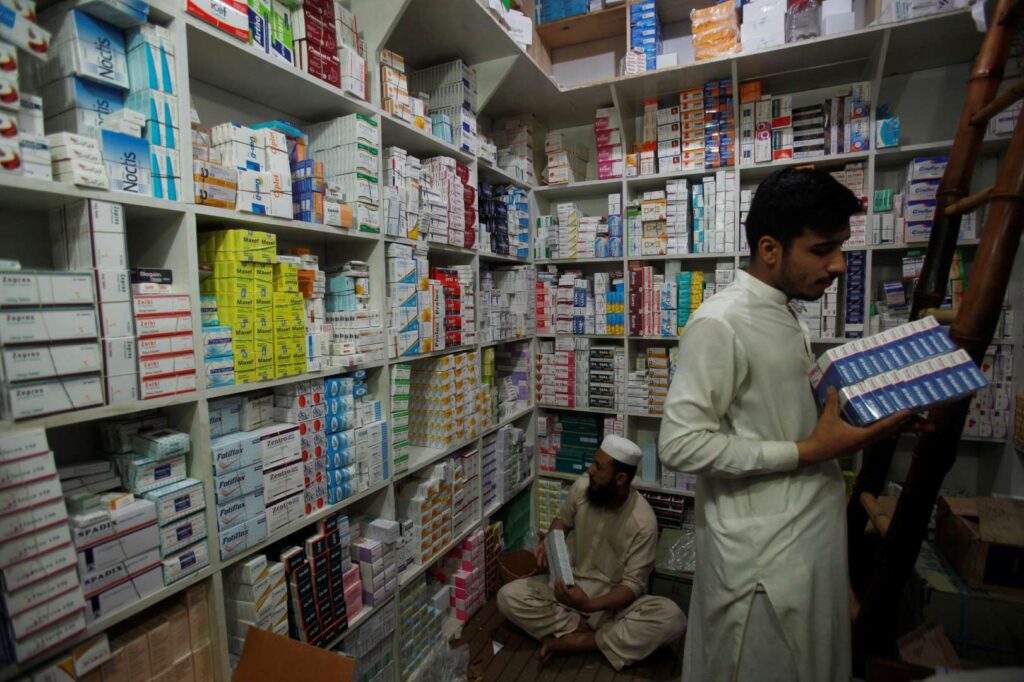Pakistan’s healthcare system is in dire straits as a shortage of critical medicines has emerged. Oncology products, plasma-derived products, vaccines, recombinant biologicals, equine serum products, cardiac enzymes, specialized hormones, insulin, and general anesthesia are all in short supply, according to doctors and pharmacists.
The reason behind this shortage is the manufacturers and importers who have stopped supplying health facilities. They cite the rising cost of manufacturing amid high inflation and massive devaluation of the local currency. Doctors say the situation has forced them to delay their routine surgical operations for the sake of any emergency cases.
The shortage of critical medicines has put the pharma industry in ICU, and doctors have stopped surgeries, causing a significant health crisis in the country. The Pakistan Medical Association (PMA) has urged the government to immediately review the Drug Pricing Policy 2018 for the adjustment of prices of imported drugs.
Dr. Abdul Ghafoor Shoro, general secretary of the Pakistan Medical Association (PMA), stated that due to the critical overall situation, most doctors have stopped routine operations temporarily and are only attending to extreme emergency cases that cannot be delayed or avoided.
Abdul Samad Budhani, who speaks for the Pakistan Chemist and Druggists Association, stated that they have urged the government to review the Drug Pricing Policy 2018 for the adjustment of prices of imported drugs.
According to manufacturers and retailers, the current situation has led to the emergence of drug black markets in Pakistan. Black marketing of medicines can result in price gouging and hoarding, making it more difficult for the general population to access critical medicines.
According to official data, Pakistan’s imports of medicinal products in the current fiscal year from July till February were worth $944 million, which is 74.12 percent less than the imports in the same period last year. This decline in imports is a significant contributor to the shortage of critical medicines in the country.
The pharma industry in Pakistan is in a difficult situation, and the government needs to act fast to address the issue. The shortage of critical medicines is a matter of life and death, and it is crucial to ensure that patients have access to the treatments they need.
The shortage of critical medicines is not only causing difficulties for patients but also affecting the livelihoods of those employed in the pharma industry. The Pakistani pharmaceutical industry employs over 150,000 people and is one of the country’s largest industries.
The situation has also highlighted the need for Pakistan to focus on domestic production of medicines to reduce its dependence on imported drugs. The country has the potential to become a hub for the production of generic drugs, but it requires investment in research and development, infrastructure, and technology.
Pakistan’s healthcare system has been under pressure for many years, and the COVID-19 pandemic has further exposed its weaknesses. The country needs to invest in its healthcare system to ensure that it can provide adequate care to its citizens.

The shortage of critical medicines is not a problem unique to Pakistan. Many developing countries face similar challenges due to their dependence on imported drugs and the rising cost of manufacturing. However, the situation in Pakistan is particularly severe, and it is imperative that the government takes immediate action to address the issue. One potential solution is to increase the import of raw materials used in the production of medicines.
The Pakistan’s healthcare system is facing a severe shortage of critical medicines. The pharma industry is struggling due to the rising cost of manufacturing and devaluation of the local currency. This shortage has forced doctors to stop routine surgeries, and only emergency cases are being treated. The government needs to review the Drug Pricing Policy 2018 and take action to address the shortage of critical medicines. The situation is dire, and it is vital to ensure that patients have access to the treatments they need.


